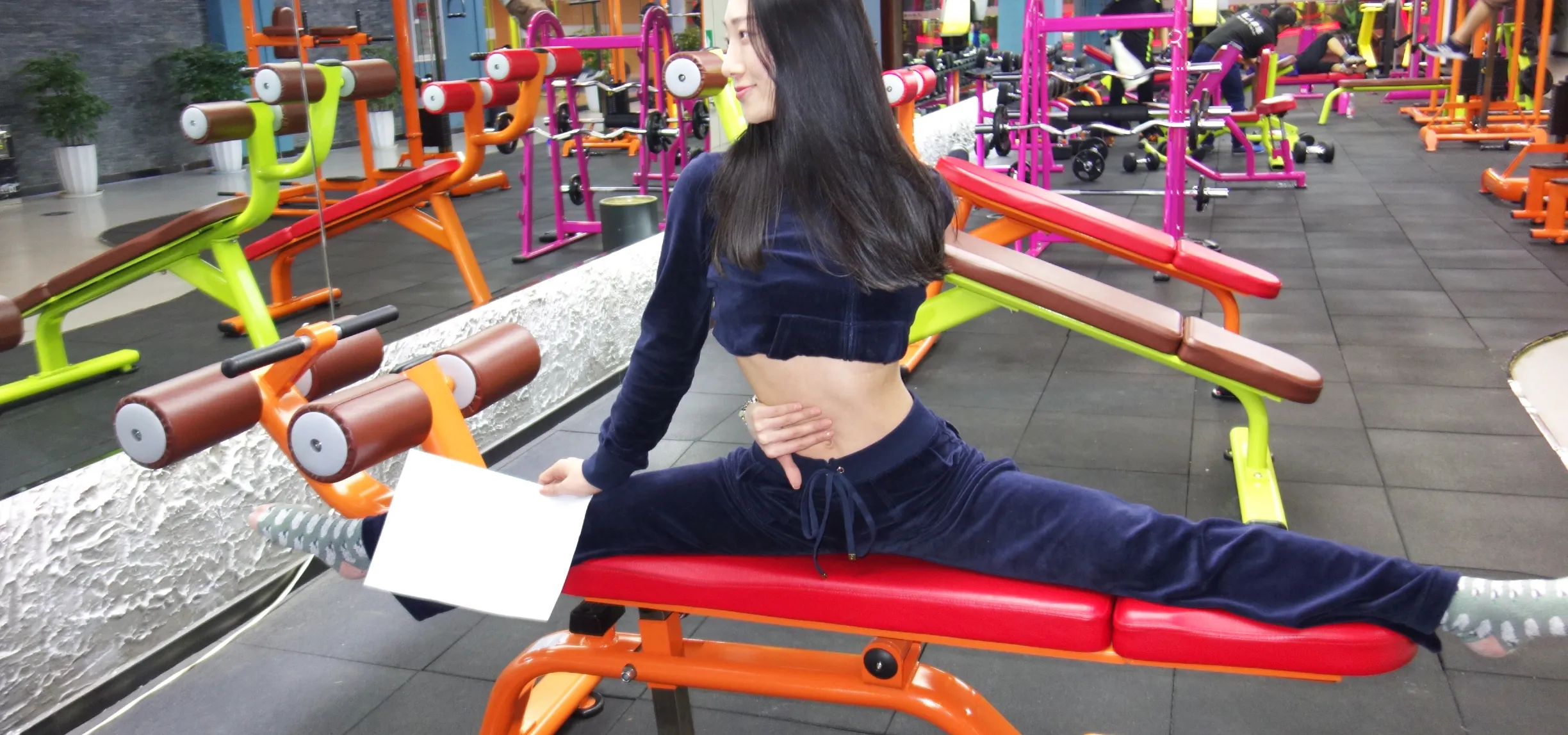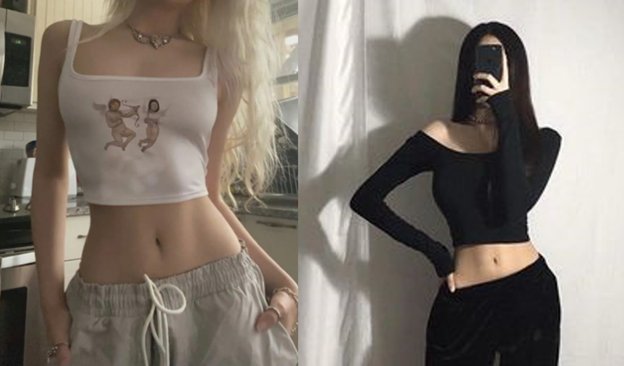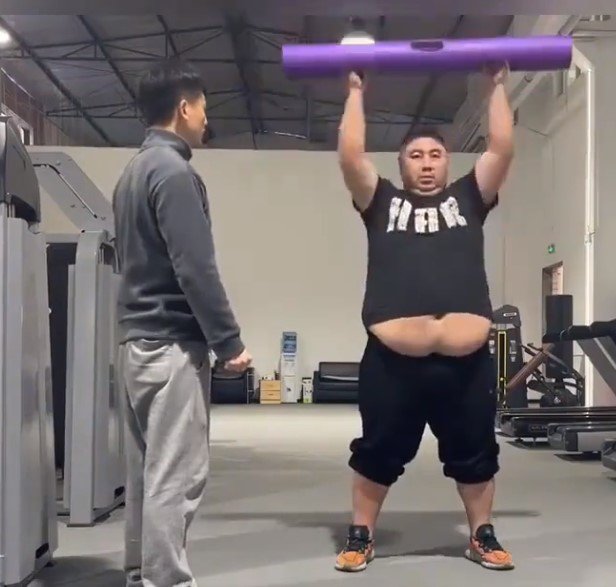The death of an influencer at a weight loss camp throws the spotlight on China’s unregulated and dangerous weight loss industry
A folk saying in Chinese goes, “a good woman doesn’t weigh over 100 catties (好女不过百),” or around 50 kilograms. But the pursuit of that dated and problematic standard proved fatal for a 21-year-old social media influencer named Cuihua this year.
Cuihua, who weighed 156 kilograms, had enrolled at a weight loss boot camp in Shaanxi province with the goal of losing 100 kilograms in May. But on just the second day of that camp, she tragically died, reportedly from “sudden shock.” After over nine months of trying to lose weight at various camps, Cuihua had shed almost 30 kg and was trying to inspire her social media followers to get in shape too. Instead, her death prompted scrutiny of China’s weight loss industry and a culture that still promotes ultra-skinny as a desirable beauty standard for women.
“She lost too much weight in such a short amount of time…it’s not good for the heart,” one netizen commented under a post of the news on social media platform Weibo. Many blamed what one netizen called “unprofessional weight loss camps,” accusing them of falsely advertising weight-loss results, encouraging unhealthy exercise regimes, and even encouraging verbal humiliation by unqualified coaches. Others worried about their own attempts to lose weight: “I’m also roughly 150 kilos and was planning on losing weight this month…what do I do now?” read one comment on Weibo.
China’s obsession with being skinny has been on the rise for years, particularly after market reforms in the 1980s brought the trappings of consumerism, marketing, and celebrity into the country. Chinese were increasingly bombarded with images of skinny as an “ideal” body type.
Social media has made the trend worse, with various online challenges promoting extreme beauty standards, mainly aimed at women. First, there was the “A4 waist challenge” in 2016, where people tried to hide their waist behind a sheet of printer paper to show off how slim it was; then the “skinny enough challenge” a few months later, where women attempted to wrap a 100 yuan bill around their wrist. In 2021, there was the “adults trying on Uniqlo children’s clothes” challenge. Now, even AI-generated models for clothes on e-commerce platforms are typically thin, tall, and have large breasts.
Spurred on by these trends, more and more young Chinese are trying to lose weight by increasingly radical and dangerous means. From unapproved pills sourced online to over-the-counter “slimming creams,” and weight loss camps that promise quick results, the weight loss industry is booming despite risks to consumers.
Deadly boot camps for BMI
Rates of obesity are rising in China. According to the government-produced 2020 Report on Chinese Residents’ Chronic Diseases and Nutrition, about 20 percent of school-aged children and 50 percent of adults were overweight or obese in China in that year.
But anxiety around body image, even for those who are not overweight, is also growing fast. In a 2018 paper by researchers at Fudan University, 1,484 of 2,023 Chinese college-aged women surveyed had attempted to lose weight in the previous six months. Among them, 618 were already underweight according to their Body Mass Index (BMI, calculated by dividing weight in kilograms by the square of height in meters). According to state broadcaster CGTN, in the decade leading up to 2022, the number of eating disorder patients in China increased five-fold.
Ji Lianmei, a pharmacist who previously worked at a hospital in Beijing and now runs an online consulting platform on Weibo called “Our Pharmacists,” often sees clients interested in weight loss treatments. They are mostly mothers worried that their adolescent children are overweight, postpartum mothers, and celebrities in the media and entertainment industry—all of them are women.
Her clients have busy lifestyles and, particularly for celebrities or online influencers (who are often already a healthy weight), feel pressure to maintain a certain body type and aesthetic. “Even beauty has become ‘involuted,’” Ji tells TWOC, using a popular slang term, involution (内卷), that refers to intense competition over limited resources in Chinese society.
Weight loss camps have proliferated to meet this demand, having first become popular around 2013 with the release of the Chinese version of the reality show The Biggest Loser, which pitted a group of overweight people against each other to see who could lose the most weight. By 2020, there were at least 300 camp brands operating across the country, according to an article that year published by the state-run Chinanews.com.
But these camps have come under fire since Cuihua’s death. Many blamed the camp for pushing her and other clients to lose too much weight too fast. The US Food and Drug Administration considers losing 1 kilogram per week a healthy rate of weight loss, but Cuihua shed almost 28 kilograms over just two months.
One participant at a camp in Changsha, Hunan province, told Chinese magazine Sanlian Lifeweek in June that after losing roughly 30 kilograms in 70 days, she experienced “vaginal bleeding” and “small red spots appeared on her body.” The woman (who appeared in the article under the pseudonym Yunyang) went to the hospital and was diagnosed with an endometriosis lesion, which required immediate surgery, as well as eczema due to a weakened immune system caused by the rapid weight loss. “I realized I couldn’t continue,” Yunyang told Sanlian, explaining how she quit the camp soon after.
Ji, the pharmacist, believes these incidents happened because the organization isn’t professionally trained and knowledgeable about the risks involved with rapid weight loss. The camp where Cuihua died told Chinese media that it provides “nutritious meals, rest, and healthy exercise,” and claimed that Cuihua had voluntarily decided to limit her diet. But lack of regulatory oversight on these organizations means they may offer unhealthy treatments or services to clients.
They may also encourage excessive weight loss in already slim people. When TWOC posed as a prospective client of a weight loss camp chain with several locations across China, a “weight loss planner,” responding over WeChat, suggested targeting a BMI of 19.9. This is below our journalist’s BMI of 21.6, even though the Chinese Center for Disease Control and Prevention says a healthy ratio is anything between 18.5 and 23.9.
To reach that target, the planner suggested 14 to 28 days in the camp at a cost of 4,400 to 9,800 yuan at its Beijing site. Once there, they explained, the participants would be in a “closed-door” training camp where they would be prevented from going home unless they submit a special request. They would participate in two-hour exercise sessions each day at 9:30 a.m. and 2:30 p.m., with another optional session in the evening. Meals would be included and prepared based on the recommendations of camp nutritionists, but the planner insisted the camp would never recommend pills, creams, or other medications to supplement the weight-loss process.
When asked about this proposal, Ji comments that it reflects the lack of scientifically trained personnel at these camps. “With a BMI already in the healthy weight range, [a professional would instead] likely take the body fat percentage into consideration,” she says.
Ruan Guangfeng, a 34-year-old nutritionist working at China Food Information Center, tells TWOC that since the only way to lose weight is to create a deficit in energy, “[it] becomes an unenjoyable process…Maybe that’s why people choose to go to weight-loss camps—because many people don’t have the discipline to lose the weight themselves.”
But devoid of regulations and driven by profit, camps also fuel the trend through aggressive marketing. Some pay celebrities and influencers to join the camps and film their experience for marketing purposes. Cuihua had previously had such an arrangement with a camp in Guangdong province, but reportedly complained that the staff often disrupted her visits home by calling her back to the camp to shoot more training videos.
Since Cuihua’s death, local authorities have opened an investigation into the camp and reported that the company had paid an unspecified amount of compensation to the influencer’s family. But wider regulation of weight loss camps is yet to emerge. On June 22, China’s National Radio and Television Administration and Ministry of Culture and Tourism released new behavior guidance for livestreamers which prohibits content that “promotes irrational consumption” or “harms the mental health of minors,” but did not directly address content related to weight loss.
Getting slim quick
In the meantime, other extreme weight loss techniques are proliferating. Many of Ji’s clients ask her for weight loss medication or are already trying over-the-counter products that claim to help consumers shed fat. Cosmetics brand Southern Xiehe recently released a “slimming cream” that costs 59 yuan per bottle, and claims to eradicate “fatty areas” on the body.
Similarly, Guangdong-based company Qingxian sells “enzyme jelly” tablets that allegedly aid weight loss by speeding up digestion. Celebrity Xu Dongdong, who has over 11 million followers on Weibo, features heavily in the company’s marketing.
Such products’ dubious weight-loss claims, however, have prompted criticism. Many consumers have complained about the inefficacy of Southern Xiehe’s cream, with one user on Douyin (China’s version of TikTok) even posting a video claiming that they gained weight after using it. “If a product is advertising weight loss results, it either doesn’t actually work or, if it does, something has been added that is likely unsafe and not yet approved, without being listed in the ingredients,” Ji tells TWOC.
Unregulated weight loss medication also appears to be becoming more popular in China. On June 28, an article on news portal Sohu News spoke to Chinese women who had turned to semaglutide, a drug originally prescribed to treat diabetes, to help control their appetites. One of them told journalists her motivation to use the drug came from the bullying she suffered for being overweight.
The drug, under the brand name Wegovy, had been approved in 2021 in the US for weight loss treatment via prescription by medical professionals, but it was only approved in China earlier this month. The women Sohu News talked to said they had obtained the drug before it was approved in China through personal connections in the pharmaceutical industry, via friends and relatives who had it prescribed for diabetes, or by claiming they have diabetes and gaining prescriptions online. Although studies prove the drug is highly effective, most people regain their lost weight after stopping the medication, and potential side effects from the drug include dizziness, gastrointestinal issues, and fatigue.
Many are still willing to take those risks for a slimmer figure. “The bigger problem is likely appearance anxiety, which seems to plague everyone these days…many young people, especially women, think to be beautiful is to be thin,” says Ruan.
One genre of social media posts in China, dubbed weipang (微胖) or “slightly overweight,” sees influencers putting themselves under that label and creating videos teaching others with their body shape how to dress in order to look slimmer. But many of these people are well within a healthy BMI range. One self-identified weipang creator on video-sharing platform Bilibili displays her measurements on some videos: 160 centimeters tall, and 55 kilograms in weight. That gives her a BMI of 21.48—definitely within the healthy range.
Other influencers, however, are beginning to promote body-positive content, and are no longer trying to hide every hint of muscle or fat on their bodies. One influencer under the name Shu Man posts about her love for the book, Love Your Body by Jessica Sanders, concluding to her 24,900 followers on Xiaohongshu that “weipang is also pretty” and “whichever version you are is the most beautiful.” Another Xiaohongshu account named “LetsEmpowerHer” has 29,700 followers and features posts on topics such as “How to love your body more.”
The growth of these kinds of attitudes makes Ji optimistic about Chinese people’s future relationship with weight, and perhaps Cuihua’s death will be a wake-up call for the weight loss industry. “Younger people have proved they value what’s on the inside more and more…for them, they do what’s most comfortable, not what’s most expected,” Ji hopes.
















